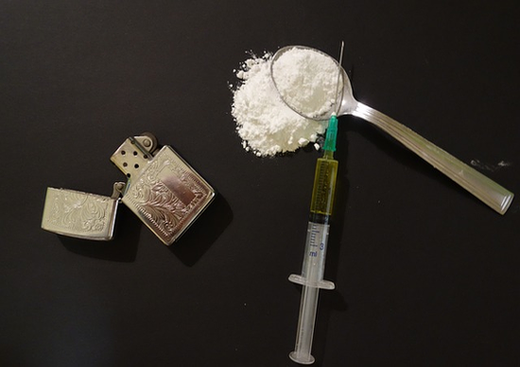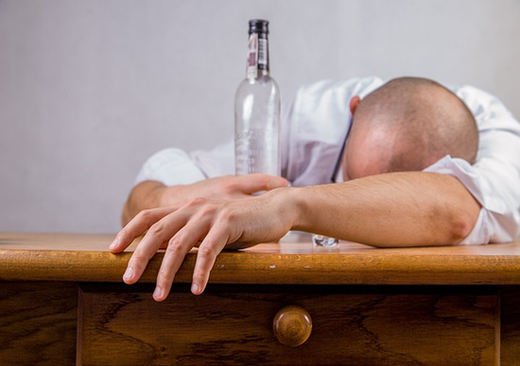Meaning of substance abuse, causes, remedies, and prevention
 From RenoBeranger on Pixabay
From RenoBeranger on Pixabay
SUBSTANCE ABUSE DEFINITION
Substance abuse is the Excessive use of psychoactive drugs, such as alcohol, pain medications, or illegal drugs.
The illegal use of drugs or for purposes other than those for which they are meant to be used, or in excessive amounts is called substance abuse. Substance abuse is simply "drug abuse," which is the misuse of legal drugs and illegal use of drugs. may lead to social, physical, emotional, and job-related problems.
Substance abuse leads to addiction.
Drug addiction is a complicated neurobiological disorder that requires combined treatment of the mental, physical, and spiritual. It is considered a brain disease because drugs alter the brain — they change its structure and how it works. Without therapy, these brain changes can be long-lasting. It can be chronic, it grows and if left untreated, it can be disastrous.
Commonly Used Illegal Drugs:
Heroin
Cocaine or crack cocaine
Methamphetamine
Bath Salts
Methadone
Ecstasy
Marijuana
LSD(Lysergic acid diethylamide)
Mushrooms
PCP(Phencyclidine)
Commonly Used Prescription Drugs:
Opioid painkillers
Benzodiazepines
Stimulants, such as those used to treat ADHD
Antidepressants
Anti-obsessive agents
Mood stabilizers…(detailed in next article)
Factors that cause drug abuse:
Neglectful, abusive, addicted, sick, or emotionally immature parents.
People who don’t recognize or fulfill their children’s emotional needs, for whatever reason.
The child is desperate to escape the emotional pain (which is rarely recognized by the child, since it’s “normal” for them) of being raised by these parents.
The child may gain access to alcohol or any other drug that makes the pain fade back for a few hours, and it seems heavenly. They then want more feeling like that, which some describe as feeling “normal” for the first time, so they seek more of the substance. That becomes a repeating pattern, and when they can’t get the substance, they have withdrawal, but even worse, the psychological craving that can persist for years afterward.
Please note that physical addiction (tolerance) is a really small part of this system. A person who becomes physically dependent on an opioid used for pain relief will usually be able to taper off it just fine. It’s the craving for that good feeling that leads to relapse and psychological addiction that is so difficult to get free of.
And there are behavioral addictions that can produce the same results, such as Sexual abuse, PTSD, Depression, Anxiety, Social phobia, Being scapegoated, and Escape from terrible life circumstances, such as poverty. Not surprisingly, those who live in extreme poverty are often looking to escape. Similarly, there was an experiment done where rats were offered unlimited amounts of drugs. One rat cage was “rat park.” There were things to do, beautiful settings, and enrichment provided. The other cage was a rat prison. Nothing to do. Rats in the enriched cage did not become drug addicts. Rats in the ‘rat prison’ did. Why? They didn’t need to “escape.”
Not having love and companionship in one’s life gambling, shopping, workaholism, etc. The body provides its drug, a flood of dopamine, in response to these behaviors. They can have the same kinds of effects on the person’s life, and certainly on any children born to these people.
Short and long-term possible outcomes or consequences of substance abuse and addictions:
If you use a substance for say 6 months, let’s say the substance is alcohol, you may become alcohol dependent, which will need a medically supervised detox. So that puts your body and mind in shock, then it all depends if said person can quit addiction in short term, if so there should be no long-lasting medical problems.
Now the big one, long-term substance misuse, abused substances like alcohol and cocaine to name a few for 22 years is long term.
Once your body becomes so used to the substance that you need it to function, then you have a problem. You are stuck in dependency, which honestly is like living in the most terrifying nightmare, as you keep using, your body and brain need more of the substance to get the desired effect, leading deeper into long-term addiction.
The only time a long-term substance abuser will stop, is if they are so badly afflicted that they are told the substance has caused massive trauma to their body and brain, this could be damaged liver, kidneys, etc.
The outcome of a long-term user could cause mental health problems, due to the brain levels of dopamine receptors going haywire, it’s looking for the substance to make it feel like it did as an active user, so can take weeks or months to recalibrate itself, this process is highly uncomfortable, to say the least, some of the problems that may come up are depression and anxiety. It can also have catastrophic consequences on the body depending upon the substance.
The good news is the brain is incredibly plastic and self-healing. Treat it right and it all comes good over many years.
 From jarmoluk on Pixabay
From jarmoluk on Pixabay
ways to prevent substance abuse:
1. Understand how substance abuse develops:
Substance abuse starts by:
Using addictive drugs (illicit or prescribed) for recreational purposes.
Seeking out intoxication every time.
Abusing prescription medication.
And try as much as possible to avoid this.
2. Avoid Temptation and Peer Pressure:
Develop healthy friendships and relationships by avoiding friends or family members who pressure you to use substances. It’s often said “we become most like those we surround ourselves by,” meaning if you surround yourself with people who abuse drugs and alcohol you are more likely to as well. Peer pressure is a major part of life for teens and adults. If you are looking to stay drug-free develop a good way to just say no, prepare a good excuse, or plan ahead of time to keep from giving in to peer pressure.
3. Seek help for mental illness: Mental illness and substance abuse often go hand in hand. If you are dealing with a mental illness such as anxiety, depression, or post-traumatic stress disorder you should seek professional help from a licensed therapist or counselor. A professional will provide you with healthy coping skills to alleviate your symptoms without turning to drugs and alcohol.
4. Examine the risk factors: Look at your family history of mental illness and addiction, several studies have shown that this disease tends to run in the family, but can be prevented. The more you are aware of your biological, environmental, and physical risk factors the more likely you are to overcome them.
5. Keep a well-balanced life:
People often turn to drugs and alcohol when something in their life is missing or not working. Practicing stress management skills can help you overcome these life stressors and will help you live a balanced and healthy life.
Develop goals and dreams for your future. These will help you focus on what you want and help you realize that drugs and alcohol will simply get in the way and hinder you from achieving your goals.
Remedies for substance abuse:
Some people can recover from substance abuse disorder just by using medication. But most times successful treatment includes counseling, support groups, and other forms of therapy. Patients may need help learning new ways of thinking and behaving. Many patients also must find new ways to address the problems that led them to abuse substances in the first place—issues like trauma, chronic pain, or mental illness.
Cognitive and behavior therapy can include such things as learning to
- Talk openly about personal experiences
- Manage problems without turning to drugs
- Identify and correct problem behavior
-
- Identify and correct harmful patterns of thinking
- Recognize drug cravings
- Identify and manage high-risk situations
- Establish motivation to change
- Improve personal relationships
- Develop refusal skills
- Manage time more efficiently
Conclusion
We hope this article will help guide you in making the right choice when it comes to substance use.
If you also have someone suffering from this issue, we recommend you advise and be with them always. This is one of the major causes of suicidal thoughts.
We will keep bringing you more articles like this, and don't forget to follow us and subscribe to our newsletter, thanks and we wish to see you again.
Related articles


Nigerian Fuel Subsidy: Balancing economic realities and social impacts
More articles »
Latest Posts

Top 5 best cheapest and fastest VPS hosting providers

What is remote work? (Meaning, Examples, Type, Pros and Cons)

How to become a professional Writer, (step-by-step guide)

Tips for becoming a successful public speaker, and monetizing your skill

Creating And Selling A Successful YouTube Channel
More Posts »